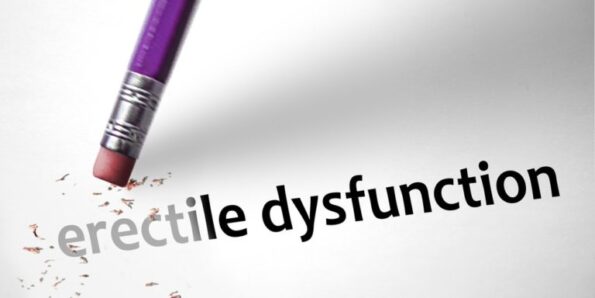Erectile dysfunction (ED) affects millions of men worldwide, causing distress and impacting their quality of life. This condition, often associated with aging, can be caused by a variety of physical and psychological factors. In this comprehensive guide, we will explore the causes, treatment options, and lifestyle changes that can help men manage and overcome erectile dysfunction.

What is Erectile Dysfunction?
Erectile dysfunction, also known as impotence, is the inability to achieve or maintain an erection firm enough for sexual intercourse. It is a common condition that can affect men of all ages, although it becomes more prevalent as men get older. While occasional difficulties with erections are normal, persistent issues may indicate an underlying health concern.
Causes of Erectile Dysfunction
- Physical Factors:
- Cardiovascular diseases such as atherosclerosis and hypertension can restrict blood flow to the penis, leading to ED.
- Diabetes damages blood vessels and nerves, contributing to erectile dysfunction.
- Neurological disorders, including multiple sclerosis and Parkinson’s disease, can interfere with the brain’s ability to send sexual arousal signals to the reproductive system.
- Hormonal imbalances, particularly low testosterone levels, can reduce libido and contribute to erectile problems.
- Certain medications, such as antidepressants and blood pressure drugs, may have side effects that impact erectile function.
- Psychological Factors:
- Stress, anxiety, and depression can disrupt the brain’s ability to trigger an erection by affecting the release of neurotransmitters involved in sexual arousal.
- Relationship issues, performance anxiety, and past traumatic experiences may contribute to psychological erectile-dysfunction.
Treatment Options for Erectile Dysfunction
- Lifestyle Changes:
- Regular exercise improves cardiovascular health and can enhance blood flow to the penis, reducing the risk of erectile dysfunction.
- A balanced diet rich in fruits, vegetables, whole grains, and lean proteins supports overall health and can positively impact erectile function.
- Managing stress through relaxation techniques, meditation, and counseling can alleviate psychological barriers to healthy sexual function.
- Medications:
- Oral medications such as sildenafil (Viagra), tadalafil (Cialis), and vardenafil (Levitra) are commonly prescribed to help men achieve and maintain erections.
- Testosterone replacement therapy may be recommended for men with low testosterone levels contributing to their erectile dysfunction.
- Therapies:
- Psychotherapy and counseling can help men address underlying psychological issues contributing to their ED.
- Vacuum erection devices and penile implants are options for men who do not respond to other treatments.
Tips for Men’s Sexual Health
- Open Communication:
- Discussing sexual concerns with a partner and seeking support can reduce anxiety and improve intimacy.
- Regular Check-ups:
- Routine medical examinations can help identify and address underlying health conditions that may contribute to erectile dysfunction.
- Healthy Lifestyle Choices:
- Avoiding tobacco, limiting alcohol consumption, and maintaining a healthy weight can support sexual health.
Conclusion
Erectile dysfunction is a common and treatable condition that can have a significant impact on men’s well-being and relationships. By understanding the causes, seeking appropriate medical care, and making positive lifestyle changes, men can take proactive steps to manage and overcome ED. Open communication with healthcare providers and partners can play a crucial role in addressing this issue and promoting men’s sexual health.
In conclusion, ED is a complex condition with various contributing factors. However, with the right approach and support, men can effectively manage and overcome this issue, restoring their confidence and enjoyment of intimacy. By taking proactive steps to address both physical and psychological aspects of ED, men can reclaim their sexual health and overall well-being.
